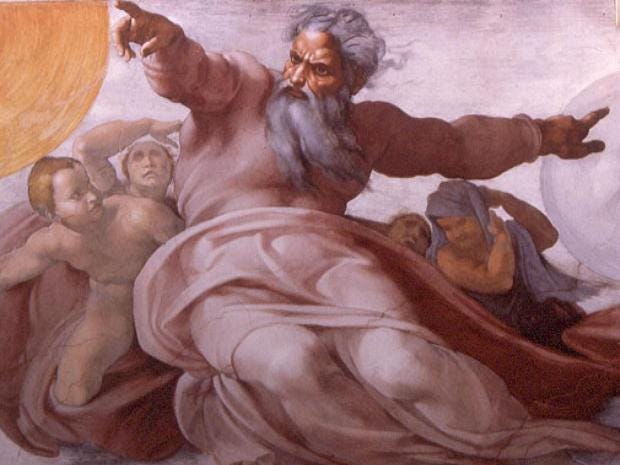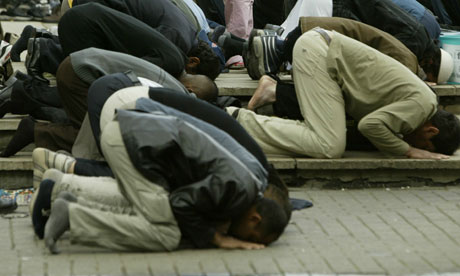Bless our stars, Steve Waugh has weighed in. From his pedestal, perched atop a great moral altitude, he spoke down to us.
"Like many, I'm deeply troubled by the events in Cape Town this last week, and acknowledge the thousands of messages I have received, mostly from heartbroken cricket followers worldwide.
"The Australian Cricket team has always believed it could win in any situation against any opposition, by playing combative, skillful and fair cricket, driven by our pride in the fabled Baggy Green.
"I have no doubt the current Australian team continues to believe in this mantra, however some have now failed our culture, making a serious error of judgement in the Cape Town Test match."
You'll have picked up by now that this was not going to be what it should have been: a mea culpa. "Sorry folks, Cape Town - my bad." One can hope for the tone, but one can't ever imagine such economy with the words.
Waugh's statement was a bid to recalibrate the Australian cricket's team moral compass, and you know, it would have been nice if he acknowledged his role in setting it awry in the first place. Because there can't be any doubt that a clean, straight line runs from the explosion-implosion of Cape Town back to that "culture" that Waugh created for his team, the one cricket gets so reverential about.
First, though, a little pre-reading prep, or YouTube wormholing, just to establish the moral frame within which we are operating. Start with this early in Waugh's international career - claiming a catch at point he clearly dropped off Kris Srikkanth. This was the 1985-86 season and he was young and the umpire spotted it and refused to give it out. So go here. This was ten years later, also at point, and he dropped Brian Lara, though he made as if he juggled and caught it. The umpire duped, Lara gone.
A man is not merely the sum of his incidents, and neither does he go through life unchanged. Waugh must have gone on to evolve, right? He became captain of Australia and soon it became clear that he had - all together now, in Morgan Freeman's voice - A Vision. There was a way he wanted his team to play the game.
He spelt it out in 2003, though all it was was a modification of the MCC's existing Spirit of Cricket doctrine. There were commitments to upholding player behaviour, and to how they treated the opposition and umpires, whose decisions they vowed to accept "as a mark of respect for our opponents, the umpires, ourselves and the game".
They would "value honesty and accept that every member of the team has a role to play in shaping and abiding by our shared standards and expectations".
Sledging or abuse would not be condoned. It wasn't enough that Australia played this way - Waugh expected others to do so as well. Here's Nasser Hussain, straight-talking in his memoir on the 2002-03 Ashes in Australia:
"I just think that about this time, he [Waugh] had lost touch with reality a bit he gave me the impression that he had forgotten what playing cricket was like for everyone other than Australia. He became a bit of a preacher. A bit righteous. It was like he expected everyone to do it the Aussie way because their way was the only way."
It was also duplicitous because the Aussie way Waugh was preaching was rarely practised on field by him or his team. So if Hussain refused to walk in the Boxing Day Test in 2002 after Jason Gillespie claimed a catch - with unanimous support from his team - well, you could hardly blame him, right, given Waugh was captain? YouTube wasn't around then, but not much got past Hussain on the field and the chances of those two "catches" having done so are low.
"Waugh created a case for Australian exceptionalism that has become every bit as distasteful, nauseating and divisive as that of American foreign policy"
As for the sledging that Waugh and his men agreed to not condone, revisit Graeme Smith's comments from the first time he played Australia, in 2001-02, with Waugh as captain. There's no need to republish it here but you can read about it (and keep kids away from the screen). It's not clever.
No, Waugh's sides didn't really show that much respect to opponents, unless their version of respect was Glenn McGrath asking Ramnaresh Sarwan - who was getting on top of Australia - what a specific part of Brian Lara's anatomy (no prizes for guessing which one) tasted like.
That incident, in Antigua, is especially instructive today because David Warner v Quinton de Kock is an exact replica. Sarwan's response, referencing McGrath's wife, was reprehensible, just as de Kock's was. But there was zilch recognition from either Warner or McGrath that they had initiated, or gotten involved in, something that could lead to such a comeback, or that their definition of "personal" was, frankly, too fluid and ill-defined for anyone's else's liking.
Waugh wasn't the ODI captain at the time of Darren Lehmann's racist outburstagainst Sri Lanka. Lehmann's captain, however, was Ricky Ponting, Waugh protege and torchbearer of values (and co-creator of the modified Spirit document), and so, historically, this was very much the Waugh era. As an aside, Lehmann's punishment was a five-ODI ban, imposed on him eventually by the ICC; no further sanctions from CA.
It's clear now that this modified code was the Australians drawing their "line", except the contents of the paper were - and continued to be - rendered irrelevant by their actions. The mere existence of it, in Australia's heads, has been enough.
You've got to marvel at the conceit of them taking a universal code and unilaterally modifying it primarily for themselves, not in discussion with, you know, the many other non-Australian stakeholders in cricket - who might view the spirit of the game differently, if at all they give any importance to it - and expecting them to adhere to it.
It's why Warner and McGrath not only could not take it being dished back, but that they saw something intrinsically wrong in receiving it and not dishing it out. It's why it was fine to sledge Sourav Ganguly on rumours about his private life, but Ganguly turning up to the toss late was, in Waugh's words, "disrespectful" - to the game, of course, not him.
Waugh created a case for Australian exceptionalism, which has become every bit as distasteful, nauseating and divisive as that of American foreign policy. Look at the varnish of formality in dousing the true implication of "mental disintegration"; does "illegal combatants" ring a bell?
What took hold after Waugh was not what he preached but what he practised. One of my favourite examples is this lesser-remembered moment involving Justin Langer, a Waugh acolyte through and through, and his surreptitious knocking-off of a bail in Sri Lanka. Whatever he was trying to do, it wasn't valuing honesty as Waugh's code wanted.
Naturally the mind is drawn to the bigger, more infamous occasions, such as the behaviour of Ponting and his side that prompted a brave and stirring calling outby Peter Roebuck. That was two years before Ponting's virtual bullying of Aleem Dar after a decision went against Australia in the Ashes. It sure was a funny way to accept the umpire's decision. Ponting loved pushing another virtuous ploy that could so easily have been a Waugh tenet: of entering into gentlemen's agreements with opposing captains and taking the fielder's word for a disputed catch. Not many opposition captains did, which was telling of the virtuousness sides ascribed to Australia.
That this happened a decade or so ago should, if nothing else, confirm that Cape Town isn't just about the culture within this side - this is a legacy, passed on from the High Priest of Righteousness, Steve Waugh, to Ponting to Michael Clarke to Steve Smith, leaders of a long list of Australian sides that may have been good, bad and great but have been consistently unloved.
It's fair to be sceptical of real change. The severity of CA's sanctions - in response to public outrage and not the misdemeanour itself - amount to another bit of righteous oneupmanship. We remove captains for ball-tampering, what do you do? We, the rest of the world, let the ICC deal with them as per the global code for such things, and in that time the sky didn't fall. Now, on the back of CA's actions, David Richardson wants tougher punishments, thus continuing the ICC's strategy of policy-making based solely on incidents from series involving the Big Three.
Waugh was a great batsman. He was the captain of a great side. The only fact to add to this is that he played the game with great sanctimony. That helps explains why Australia now are where they are.






